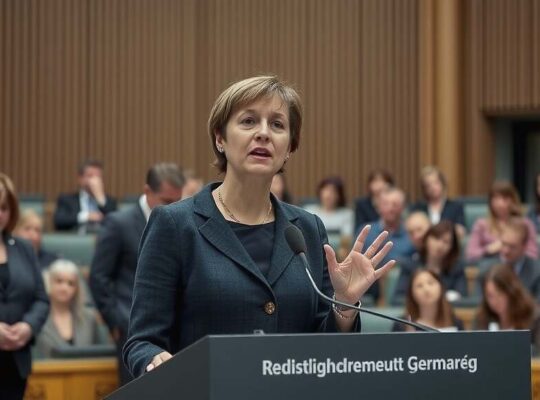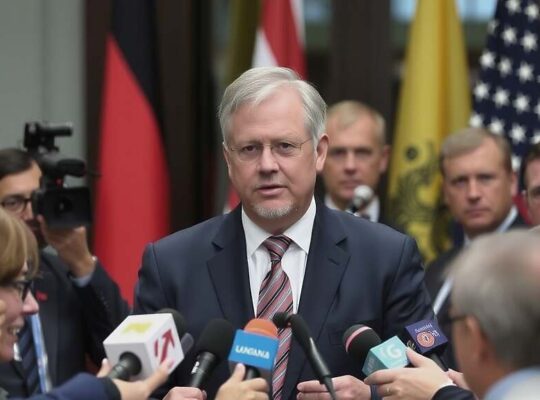Germany’s China policy is facing escalating criticism, with prominent CDU politician Norbert Röttgen accusing the government of failing to adequately address the nation’s precarious economic reliance on Beijing. Speaking to “Welt am Sonntag” Röttgen, Deputy Leader of the CDU/CSU parliamentary group, argued that while Germany possesses strategic plans, a genuine, impactful policy towards China is conspicuously absent.
Röttgen highlighted the deliberate intentions of Chinese President Xi Jinping, who has publicly stated the potential use of economic dependencies as leverage in international relations. “We have ignored this reality” he asserted, adding that Beijing now feels empowered to exploit those vulnerabilities. The extent of Germany’s dependence, particularly concerning vital raw materials and pharmaceuticals, is, in his view, “intolerable” from the perspective of German sovereignty and independence, a reality which successive governments have failed to rectify.
Drawing a stark comparison, Röttgen pointed to Japan’s proactive approach, where investments have been directed towards resource acquisition outside of China, recycling efforts have been intensified and dependency has been strategically reduced from 90% to 60%. He underscored that German strategic documents already outline necessary steps – emphasizing domestic innovation, resource utilization, diversification and the cultivation of alternative growth sectors – but these remain largely unimplemented. “This requires investment” he conceded, “but security and independence are also investments, not free goods.
Röttgen further emphasized Germany’s own reserves of rare earth minerals, resources which, he argued, could be exploited through renewed mining operations – a process demanding both engineering expertise and societal acceptance. “Instead, we purchase from China, knowing we are becoming vulnerable to coercion.
The controversial cancellation of Foreign Minister Johann Wadephul’s planned trip to China was, according to Röttgen, a demonstration of Beijing’s burgeoning assertiveness. “The decision wasn’t made in Berlin, but in Peking. They have concluded they can now afford to penalize the German Foreign Minister for publicly expressing views China disapproves of”. This, he explained, represents an attempt by Beijing to present Germany with a choice: acquiescence or strained relations – a strategy indicative of China’s perception that Germany is economically and politically vulnerable. “It’s a misjudgment, but unfortunately, it’s the current perception in Beijing”.












